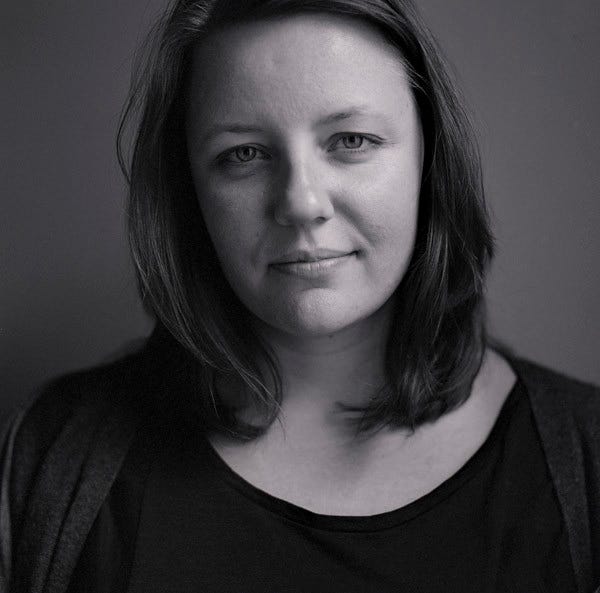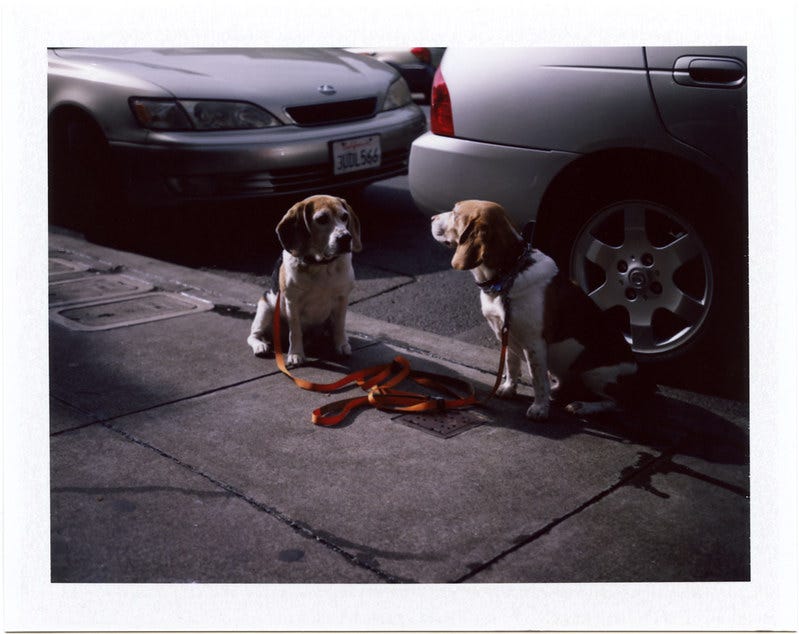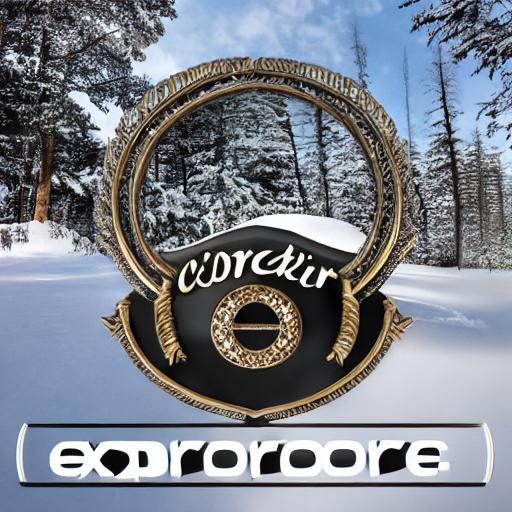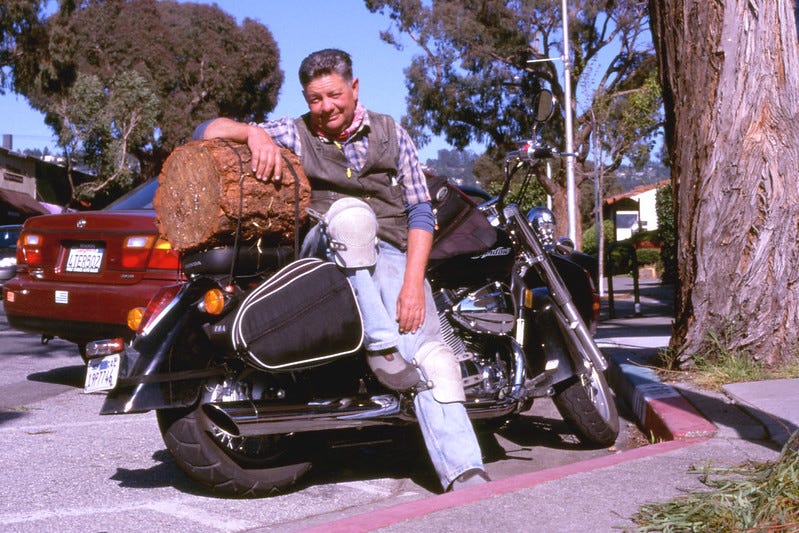You just keep showing up
as in creative endeavors, so too in friendship
Right now I’m staring at this blank screen, trying to figure out what I want to write about this week, because I promised myself I’d write every week. I really want to write more about friendship – it touched a nerve last week, I got quite a few thoughtful responses from people who feel much the same as I do and have similar frustrations – but I feel a little scattered. Here’s what I’m thinking about right now:
The work of creativity
The work of friendship
The way social media is not fundamentally designed to support either friendship or creativity, even if sometimes it does happen along the way
This video of Sinéad O’Connor, and honestly so much of what she said in her lifetime that I somehow missed, or wasn’t ready to hear or understand
I guess I’m thinking about all this in part because I don’t know what to write about. Some days, I know what to write about, or it comes so easily. There’s an external topic, or inspiration, or I just know. I’ve been writing it in my head, turning it over, so when I sit down it all comes out in a rush. Other days, I think I’m going to write about one thing, and I do, or try to anyway, but then after hours of bashing the topic around I realize it’s absolutely not going anywhere worth going, and I need to give up. And of course most days (weeks, months), writing is about the act of sitting down and just getting something, anything, written.
Yes, I am the one millionth person to say this about writing, about any kind of creation. Don’t worry, this newsletter isn’t going to be a rehash of 5% inspiration, 95% perspiration, or whatever the ratio is. I promise to bring up the mundanity of excellence only once, and honestly I’m bringing it up because it was the first article I read in my sociology PhD program and somehow one of the few that has stuck with me. But this sort of work, this repetition, this showing up over and over again, mostly on your own, bashing things around (words, notes, paint, your head) to see whether they work together, and feeling alternately like you’ve really got something and also that you’re an abject irredeemable failure: I dunno, sounds kind of like human relationships.
As I think I’ve mentioned before, and as a lot of you know, the best online community I was ever a part of was Flickr. Shoutout to all my Flickr friends – the relationships I developed on Flickr are some of the most consistent and persistent of my life. I want to say that’s funny, but it’s not, because I think that happened for a reason. For those unfamiliar, Flickr was – well, it still exists, but as a hollow shell of its former self, so I’ll refer to it in the past since that’s the version I’m talking about – a photo sharing website. It was launched by Stewart Butterfield, the same guy who founded Slack, although at Flickr he had different cofounders. It would eventually be purchased by Yahoo! (remember Yahoo! everyone?), which is what hastened its downfall. This is also, I believe, why Stewart swore he would never sell Slack, until he did. But that is very much a story for another newsletter.
Anyway, Flickr was created because the people working on another project together (a failed video game, which fun fact is also how Slack started) needed to be able to share digital images and photos with one another. And voilà, this cool photo sharing website was born. What made Flickr special were a few things:
It was really truly about photography. Not in the way Instagram was, for a time. It was about photography in all its myriad forms: 35 mm film, medium format, large format, digital, cameras, Polaroid, processing black & white film in your bathroom, scanning photos and painstakingly removing dust in Photoshop, photo walks, professionals, amateurs, boundary pushing techniques, self-portraiture (very much before “selfie” became a word), and more. This is important because Flickr was about photography first. The social element came second.
Because the social element was secondary, you were able to meet people through a shared interest, skill, or hobby. So you could connect with people because of that interest, which gave you something in common to discuss as a foundation for getting to know one another. WHICH IS HOW FRIENDSHIP WORKS, sorry for yelling but I’m having flashbacks to lots of meetings at IG when I would be gobsmacked at the idea of trying to build a tool to help people connect and talk more with their friends without giving equal attention to the stuff they could connect over.
I feel like I say this every week but: Do you ever stop to wonder whether the people who build social media products understand how friendship works? I don’t mean whether they care, I mean whether they understand the fundamental nuts and bolts of how friendship happens. As I have already confessed, I am frequently befuddled by friendship, writ large, so who am I to cast aspersions! This is not meant to be total shade, just partial: No, they do not. Or if they do, they frequently do not bring that knowledge to work. Because I’m not even talking about the nuances of friendship, I’m talking about the A to B elements.
Think, for a moment, about one of your friendships. Pick one, doesn’t matter which. Do you have any friendships that never, not once, involved connecting over a shared interest, shared experience, shared understanding? If you do, please tell me immediately, I want to learn more. Because most people do not. Most people want – need! – a reason to chat to a friend, especially a new friend. This is how many people make new friends, period. You like running so you join a running club, and hey turns out some of the people in the club are cool and you spend a lot of time running with them and it turns out a few of them love trivia but can’t find anyone to be on a team with and before you know it, you’re trivia buddies and now one of them is coming over to dinner with you and your partner. This is not about me because I loathe running and never even remember trivia nights are a thing, but you get the picture.

Yes, of course, we have friends we can just text with a “omg i hate my life” and they will respond, but most of those friends became friends because we shared something with them: home room, a hobby, a band no one else is into, an ability to lock eyes across a conference table and immediately know you will be talking shit as soon as the meeting is over. This is why I think so many people love memes and use them as a primary communication mechanism: They are shorthand for all the shared interests, jokes, and relatable content, the modern equivalent of a Hallmark card that says “Thinking of You.”
Anyway, where was I.
So yeah, a Flickr page was not necessarily about the person but about this thing they were into, and how they shared it. Sort of like how blogs were originally that but for writing. And yes, many people shared photos of their lives, just like on Instagram and just like they wrote about their lives in those blog posts. So when you saw someone’s Flickr photos, you often saw the art (or attempt at art) before you ever saw the person or their lives. And that changed how you interacted with them. When I worked at IG, I would tell teams that the impetus for the creation of a feature or a product is the foundation that can help drive its evolution. It helps drive the ideas that form it over time. Lots of companies have struggled with this when they’ve moved away from the thing that originally drove them – that’s how important this foundation is.
I hesitate to say Flickr wasn’t about popularity, because I certainly wanted more people to see my photos, and some of my friends had massive followings. But Flickr wasn’t really about popularity or virality, not anywhere in the way or on the scale IG, Twitter, or TikTok are. There was the Discover page, where your photo ended up if it hit some weird algorithmic (I think it was an algorithm?) jackpot, which meant lots and lots more people would see it. And then all those people would flock to your photo and say “Congrats on Explore!” with a sparkly little gif, which meant “Congrats on Explore” [sparkly gif] became kind of a joke amongst most people who didn’t care about Explore or even want to end up on the Explore page, because that had nothing to do with why they were using Flickr.
I learned more about photography on Flickr than I ever imagined possible. People taught me stuff and encouraged me. People who I genuinely admired and who knew what they were doing. I did a 365 project, which is a photo a day for a year and when you look at my photos from the beginning of that year to the end, the growth is remarkable. It wasn’t only because doing something every day for a year means you will likely get better, although that’s part of it. It was also because I worked at it. I asked for feedback. I took the stupid photo on the day when taking the stupid photo was the last thing I felt like doing, or when I had nothing worth photographing and the photo was going to be an actual stupid photo. I think I forgot exactly once, which is a good run. But I kept showing up, over and over, with the intent to learn and improve and make something – not for an audience, not for virality, but for myself.
(Variations on this include a 365 self-portrait project, which I didn’t do because I already did a lot of self-portraiture, frequently with Polaroids and often with double exposures. Here is a double exposure self-portrait I did that I’ve always liked.)
And finally, Flickr genuinely cared about community moderation. I’ve written about this before, primarily in a talk I gave at different UX conferences. (I think it was Empathy for the Admin, but I accidentally copied over the Keynote file for that talk so unless I find a separate saved version, it is lost to time. It was really good though.) Flickr’s community moderators were active, intentional, invited conversation and debate, unafraid to make controversial opinions that upheld the rules and decisions they – with the help of the community – had made. You know that line I wrote about how “culture takes root whether you’re intentional about it or not”? A lot of people liked that line. Flickr inspired it, because Flickr was more intentional about the culture of the site than any other community I’ve ever been involved with. It was like early Internet, or like what I heard about The Well (which stands for The Whole Earth ‘Lectronic Link – now you know!). Flickr showed up and did the work, over and over, to make things better, even when they were hard. Until Yahoo! bought them and the money ruined everything.
So all of this is to say… what? As in creativity, so too in friendships? Kind of! You have to keep showing up, over and over, even when it’s annoying or you don’t know what to do. That’s how it works! That’s the annoying thing about life! Nothing just magically makes itself, except shit you don’t want, like garbage and cancer!
And for what it’s worth, I have made wonderful friends through post-Flickr social media. I’ve been creative on social media, and it’s given me opportunities I might never have otherwise. I don’t think social media is inherently bad, but I do think that whatever your foundation, that will set the tone for what you build. As in friendship, and as in creative endeavors. But maybe that’s worth digging into more next time.
It’s funny. I sat and stared and fretted for hours, and then once I got going, this thing came out of me in about an hour. I finally took the stupid photo.
Until next time!
Lxx
****
Three recommendations from me, if recommendations are your thing:
The other day I got soft-serve gelato at this Roman-style pizza place near me where the only flavors are pistachio and fior di latte. I always get the swirl but I learned you can ask for salt (and olive oil, but no thank you, I do not like olive oil on my ice cream, too many competing fat textures for one mouth). Life changing. Can highly recommend. It’s like the grownup version of sticking your french fries in your Wendy’s Frosty, although I would also like that right now just as much as the grownup version.
Speaking of ice cream: Grape-Nuts ice cream. It’s so good. I will brook no Grape-Nuts slander in my comments or email, because Grape-Nuts are delicious mixed in to some yogurt and fruit, so don’t even TRY ME. But do try Grape-Nuts ice cream if you can find it near you. Or make it!
Season 2 of The Bear. I’m sure everyone has seen it and I sound uncool here but seriously: Watch it.







Oh, man, this rings so true. So much about what I like about my life since I joined Flickr in the fall of 2004 is tied to Flickr in one way or another. The major difference between Flickr and Instagram is that we didn't just scroll by. Actual conversations were had, and if you liked what someone had to say, or appreciated their sense of humour, you'd click over to their stream and see what their photos were like, and then you'd see comments there and find someone else to engage with, and it just went on and on... Flickr for breakfast, lunch, and dinner, and midnight snack.
I met well over a hundred people in person (maybe even two hundred) thanks to Flickr, and so many of those people continue to be real-life friends today. One contact invited me to stay with her and her family in Paris, which—thanks to my having missed my flight home—turned into one of the best three-week periods of my life, both in what I experienced and in the friendships I made. I continue to try to learn French.
I moved to San Francisco to live with another Flickr contact. After making the move, and with not a single client in my pocket, my quasi-successful photography career got a huge jump start thanks to another Flickr contact when she asked me to photograph her brother's 70th birthday party.
https://medium.com/@ptpower/anatomy-of-a-picture-abc1fc304e6b
I have tried several times to renew my activity at Flickr, but it doesn't really seem to click, and that makes me sad. Since so much of our online activity now is done via our phones, the scroll-by-tap-to-like Instagram experience replicates itself at Flickr. I continue to purchase Pro membership mostly because I don't want those conversations to vanish, even though many of the participants have either deleted their accounts or have chosen not to maintain their Pro statuses.
I’m still on Flickr, mostly using it for photo backup storage (with 90%+ of my photos being private). I’m doing a 365 project again this year, but yeah, it’s not the same anymore. I think the whole shift in how people use social media has also changed the way people use Flickr. And, of course, phone pics. You can still find good photos on Flickr, but the social aspect is all but gone.